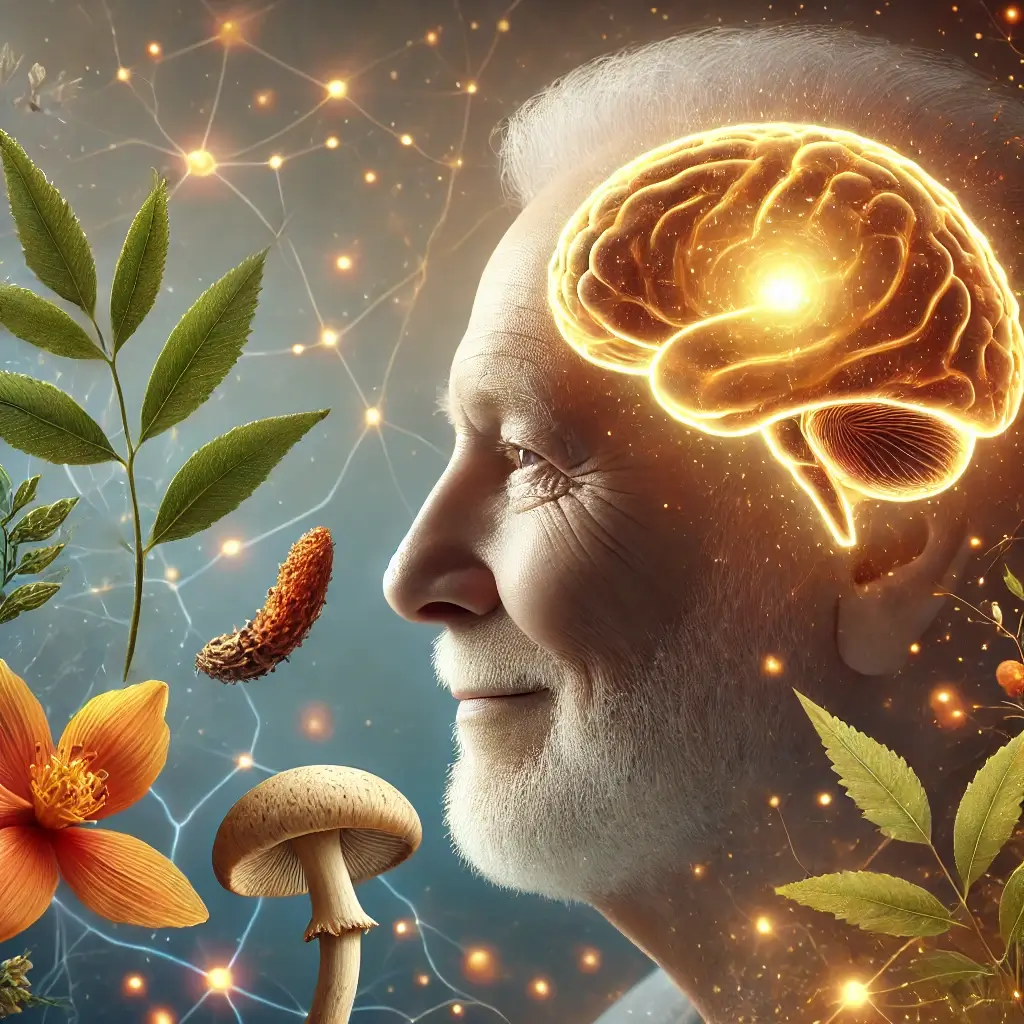Memory Enhancement Herbs: Cognitive Research
Introduction: Unlocking Natural Cognitive Potential
In a world where cognitive performance influences daily productivity, focus, and long-term brain health, many individuals are turning to natural remedies to maintain and enhance memory. While pharmaceuticals dominate the cognitive health market, scientific interest in the benefits of herbal medicine has been growing steadily.
Memory-enhancing herbs have been integral to traditional healing systems like Ayurveda, Traditional Chinese Medicine (TCM), and Western herbalism for centuries. Today, modern research is validating their cognitive benefits, offering a natural and holistic approach to brain health.
Factors such as aging, stress, poor diet, sleep deprivation, and diseases like Alzheimer’s contribute to cognitive decline. Herbs with nootropic properties—cognitive-enhancing compounds—help support mental clarity, improve learning ability, and protect brain cells from oxidative damage. Unlike synthetic drugs that may cause side effects, herbal treatments naturally work with the body to enhance cognitive abilities.
Ginkgo biloba, Bacopa monnieri, Rhodiola rosea, and Lion’s Mane mushroom are among the most promising memory-enhancing herbs. Studies highlight their ability to improve retention, concentration, and overall cognitive function.
As research continues to validate these herbs’ cognitive benefits, many people are incorporating them into their wellness routines to maintain optimal brain function. This article explores the scientific evidence behind these natural cognitive enhancers to help individuals make informed decisions about their brain health.
Scientific and Medical Research on Memory Enhancement Herbs
Ginkgo Biloba: The Brain-Boosting Leaf
Ginkgo biloba is one of the most extensively studied herbs for cognitive enhancement. Researchers suggest that it improves memory by increasing blood circulation in the brain and protecting neurons from oxidative stress.
A study published in Psychopharmacology found that individuals who supplemented with Ginkgo biloba exhibited significant improvements in cognitive performance, particularly in working memory and processing speed [1].
Furthermore, a meta-analysis in The Journal of Alzheimer’s Disease concluded that Ginkgo biloba supplementation could help slow cognitive decline in individuals with mild dementia and memory impairment [2].
Bacopa Monnieri: The Ayurvedic Memory Tonic
Bacopa monnieri has long been a staple of Ayurvedic medicine due to its adaptogenic and cognitive-enhancing properties.
A randomized, double-blind placebo-controlled study published in the Journal of Alternative and Complementary Medicine reported that after 12 weeks of supplementation, Bacopa monnieri significantly improved memory retention, information processing, and learning ability [3].
Additionally, Evidence-Based Complementary and Alternative Medicine published research confirming that Bacopa’s neuroprotective effects may be attributed to its ability to reduce oxidative stress and enhance synaptic communication [4].
Rhodiola Rosea: Enhancing Cognitive Function Under Stress
Rhodiola rosea is an adaptogenic herb renowned for its ability to improve cognitive function, particularly under high-stress conditions.
A study published in Phytomedicine revealed that Rhodiola supplementation reduced mental fatigue and enhanced cognitive performance in individuals performing stressful cognitive tasks [5].
Another study in Frontiers in Pharmacology highlighted the herb’s role in modulating neurotransmitters, such as serotonin and dopamine, which are crucial for memory, focus, and mood stability [6].
Lion’s Mane Mushroom: Stimulating Brain Cell Growth
Lion’s Mane mushroom (Hericium erinaceus) is attracting scientific attention for its potential to stimulate neurogenesis— the growth of new nerve cells.
A study published in the International Journal of Medicinal Mushrooms found that supplementing with Lion’s Mane extract for 16 weeks led to significant cognitive improvements in older adults with mild cognitive impairment. Researchers attributed these benefits to its ability to stimulate the production of nerve growth factor (NGF) [7].
Additionally, preclinical research suggests that Lion’s Mane supports brain health by reducing inflammation and promoting synaptic regeneration [8].
Conclusion: Nature’s Answer to Memory Enhancement
Memory-enhancing herbs offer a natural, scientifically backed way to support cognitive function and promote brain health. Research validates the effectiveness of traditionally used botanicals such as Ginkgo biloba, Bacopa monnieri, Rhodiola rosea, and Lion’s Mane mushroom for improving memory, focus, and overall mental clarity.
Unlike synthetic drugs, which may lead to unwanted side effects or dependency, these herbs work holistically by improving circulation, reducing oxidative stress, protecting neurons, and balancing neurotransmitter levels.
However, while herbal supplements provide promising benefits, individuals should use them appropriately and consult a healthcare professional before incorporating them—especially if they are on medications or managing chronic conditions.
For long-term cognitive health, a well-rounded lifestyle that includes a nutritious diet, consistent exercise, mental stimulation, and quality sleep—combined with herbal supplementation—can significantly enhance brain longevity. With continued scientific exploration, natural remedies might hold the key to lasting cognitive health and neuroprotection.
Summary:
The article explores the scientific evidence behind natural memory-enhancing herbs, including Ginkgo biloba, Bacopa monnieri, Rhodiola rosea, and Lion’s Mane mushroom. These herbs have been used in traditional healing systems for centuries and are now being validated by modern research for their cognitive-enhancing properties. The article discusses how these herbs can help improve memory, focus, and overall brain health without the side effects associated with synthetic drugs. It encourages readers to consult healthcare professionals before incorporating herbal supplements and emphasizes the importance of a well-rounded lifestyle for long-term cognitive health.

Dominic E. is a passionate filmmaker navigating the exciting intersection of art and science. By day, he delves into the complexities of the human body as a full-time medical writer, meticulously translating intricate medical concepts into accessible and engaging narratives. By night, he explores the boundless realm of cinematic storytelling, crafting narratives that evoke emotion and challenge perspectives.
Film Student and Full-time Medical Writer for ContentVendor.com




